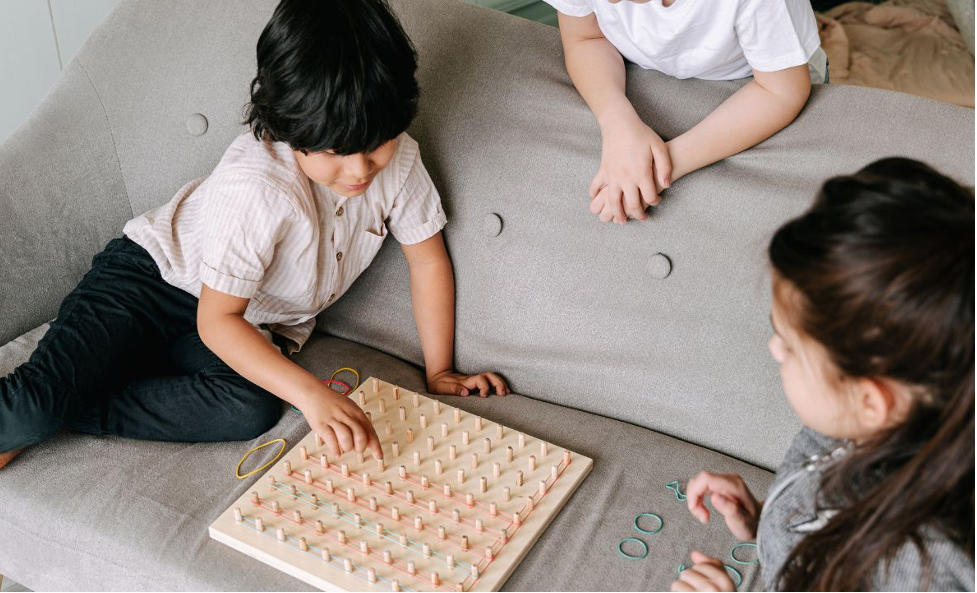Autism can be a challenging condition to understand and manage. For many families, it can be difficult to understand why their autistic children have limited interests and how to best support them. However, with the right strategies, parents and caregivers can help their autistic children explore and engage in new activities. In this blog, we will be discussing the unique challenges and benefits of limited interests in autistic children and providing strategies and resources for encouraging positive engagement.
Limited Interests in Autistic Children
Autism is a complex condition that affects how a person interacts with their environment. For many autistic people, this can manifest as limited interest in certain topics or activities. These interests may be narrow and specific, such as a fascination with trains or an obsession with numbers. They can also be broader, such as a love for animals or an interest in science.
Younger children with Autism usually favor activities that require letters and numbers. They may have difficulty joining with other kids who prefer to do things like pretend to play with dolls or assemble blocks. As Autistic kid ages, they may become quite passionate about a particular subject, for example, the solar system. This might lead to them lacking the chance to make friends through activities such as sports or talking about other topics, since those don’t connect to their favored subject. Limited interests can be a source of comfort for autistic people, providing a sense of safety and familiarity.
At the same time, limited interests can be a source of frustration for parents and caregivers. It can be difficult to understand why a child is so attached to a certain topic or activity, and why they seem to lack interest in other activities. It can also be difficult to manage the intensity of their interests, as they may become obsessed or fixated on certain activities.
Limited interests can lead to some of the following:
- Struggling to make friends
- Having a hard time initiating dialogue with others
- Having difficulty sustaining a conversation
- Lack of versatility
- Imbalanced language development

Limited Interests in Different Genders
The study found that those who were male, had an intellectual handicap, and struggled with their social and communication abilities had a higher tendency for special interests. Although the association between special interests and such difficulties is not completely understood, earlier research has indicated that those with autism tend to receive more satisfaction from non-social activities than social contact, and thus turn to their special interests instead. The findings also indicated that intellectual capacity and age had no effect on the amount or type of interest, but there was a noticeable correlation between gender and the kind of interest. Specifically, women were more apt to have creative hobbies like drawing, painting, or acting, while men were more likely to take pleasure in characters, vehicles, computers/video games, and mechanical objects.
The Benefits of Limited Interests
Despite the challenges of limited interest in autistic children, there are also many benefits. For one, limited interests can provide a sense of comfort and safety for autistic children. They can help to reduce anxiety and provide a sense of control in an unpredictable world. Limited interests can also provide autistic children with a source of enjoyment and pleasure. They may find joy in exploring their interests, discovering new facts, and engaging in activities that they enjoy.
In addition, limited interests can be an effective way to motivate autistic children. They can provide a source of enjoyment and engagement, helping to motivate children to engage in activities and develop new skills. Finally, limited interests can be a source of connection for autistic children. By engaging in their interests, they may be able to find common ground with other people, forming meaningful connections and relationships.

Strategies for Encouraging Limited Interests
When it comes to encouraging limited interests in autistic children, it is important to find a balance between enabling and challenging. On one hand, it is important to support and encourage the child’s interests. On the other hand, it is important to push them to explore new activities and develop new skills. Here are some strategies for encouraging limited interests:
- Offer choices – Provide the child with choices, and allow them to make decisions about what activities they want to engage in. This will help them to feel empowered and in control of their choices.
- Set boundaries – Set clear boundaries around what is acceptable behavior. This will help to keep the child safe and ensure that their interests do not become overwhelming or obsessive.
- Provide structure – Provide structure and consistency for the child. This will help them to feel secure and will provide them with a sense of routine and predictability.
- Create opportunities – Create opportunities for the child to explore their interests. This could include introducing them to new activities or providing them with resources to explore their interests.
- Encourage engagement – Encourage the child to engage with other people and activities. This will help them to develop new skills and will provide them with the opportunity to make new connections.
Creative Ways to Engage Autistic Children
It can be difficult to engage autistic children in activities that are outside of their limited interests. However, there are many creative ways to engage them in new activities. Here are some ideas:
- Create a theme: Create a theme around the activity or introduce a fun element to make it more interesting. For example, if the child is interested in trains, create a train-themed activity or create a game that involves counting the number of trains.
- Involve the child: Involve the child in the planning process by allowing them to make decisions and provide input. This will help them to feel empowered and in control of their choices.
- Use technology: Use technology to engage the child in activities. For example, use apps, videos, and websites to explore topics that the child is interested in.
- Play games: Play games that involve their interests. For example, you could play a game of counting trains or a game of matching pictures of animals.
- Connect with others: Connect with other people who share the same interests. This will allow the child to make new connections and form meaningful relationships.

Developing Positive Attitudes Toward Limited Interests
It is important to develop positive attitudes toward limited interests in autistic children. It is important to recognize that these interests can provide comfort and security for the child.
By developing positive attitudes toward limited interests, parents and caregivers can help their autistic children explore and engage in new activities. They can help to provide structure and consistency in the child’s life and can provide them with opportunities to explore their interests in new and creative ways.
Conclusion
Limited interests can be a source of comfort and connection for autistic children. However, they can also be a source of frustration and difficulty for parents and caregivers. It is important to understand the unique challenges and benefits of limited interests in order to find the right balance between enabling and challenging. With the right strategies and resources, parents and caregivers can help their autistic children explore and engage in new activities.
References:
Jon P. | 32 years old, Nico L. | 2 years old, C., M., & M., D. C. (n.d.). Autism speaks. Autism Speaks. Retrieved January 10, 2023, from https://www.autismspeaks.org/
Society, N. A. (n.d.). National Autistic Society. Retrieved January 10, 2023, from https://www.autism.org.uk/
TherapyWorks blog: Info on Pediatric Child Development. TherapyWorks. (n.d.). Retrieved January 10, 2023, from https://therapyworks.com/blog



